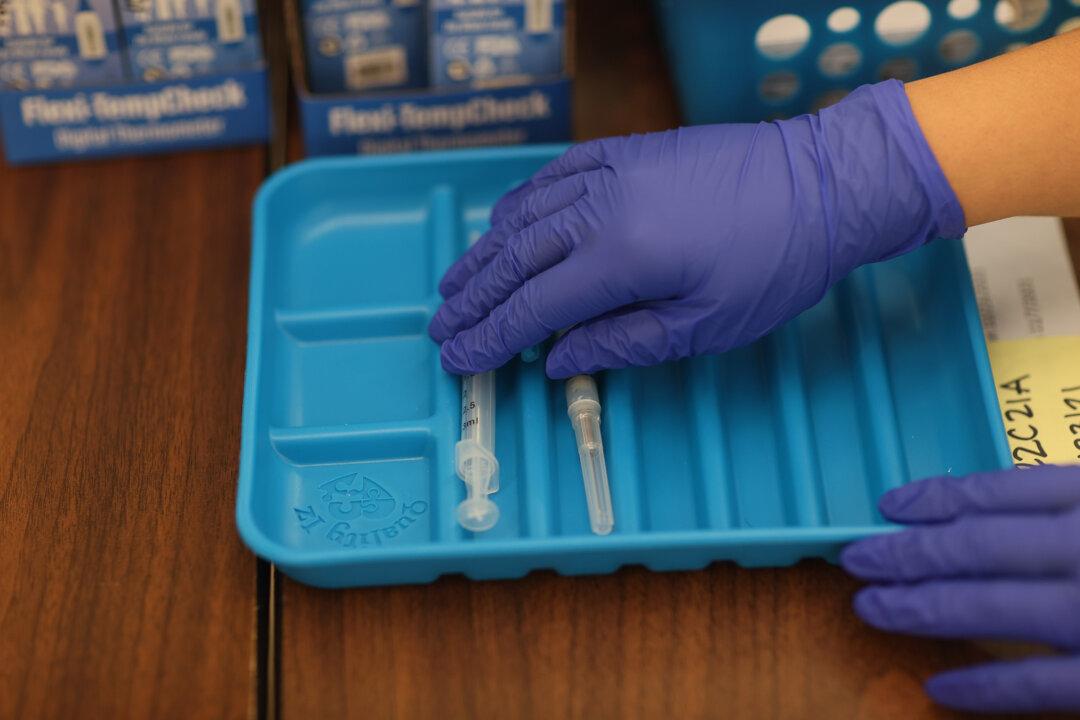The effectiveness of a COVID-19 vaccine booster against hospitalization drops sharply within months, according to a new study.
The effectiveness of a two-dose primary series of the Moderna or Pfizer vaccines after 14 months was just 19 percent, according to the new paper. That protection jumped to 89 percent after a booster dose but dropped to 66 percent between four and six months and to 31 percent after eight months.





